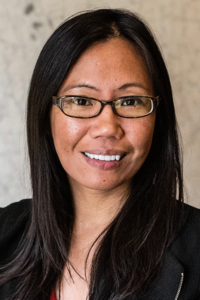During the annual National Institute of Diabetes and Digestive and Kidney Diseases (NIDDK) Symposium at the Scientific Sessions, several researchers will discuss how basic science is providing new insight into the heterogeneity of diabetes and how that is translating to patient care.

NIDDK Symposium—Heterogeneity in Diabetes Mellitus—Developing a More Stratified Medical Approach from the Bench to Bedside will be presented from 4:00 p.m. – 6:00 p.m. ET Saturday, June 26.
Emilyn Uy Alejandro, PhD, will discuss research focused on identifying endogenous modulators of beta cell function for potential treatment. Dr. Alejandro is the McKnight Land-Grant Professor, the Maurice Visscher Biomedical Scholar, and Assistant Professor of Integrative Biology and Physiology, University of Minnesota Medical School.
“One of the advances we are looking for in our field is related to endogenous proteins that have the multifunctional capability to promote myriad important functions, such as proper insulin secretion in response to a meal, as well as promote cell resilience, survival, cell division, and identity maintenance of insulin-producing cells,” she said.
Dr. Alejandro will focus specifically on the novel sets of nutrient-sensor proteins highly expressed in insulin-producing cells that regulate not only the nutrient-sensing ability of beta cells so that they can secrete the appropriate amount of insulin to regulate glucose levels, but also other important cell processes, including survival in a pro-diabetic environment such as hyperglycemia and hyperlipidemia in obesity and type 2 diabetes.
“We are discovering that nutrient-sensor proteins such as OGT (O-GlcNAc transferase) can act as a conductor in insulin-producing beta cells, and that OGT can orchestrate a cohesive response and synchronize multiple actions of multiple targets such as transcription and mitochondrial proteins to impact overall function, survival, and cell fate,” Dr. Alejandro explained. “A greater understanding of how these nutrient-sensor proteins work may tell us ways to promote ‘super’ beta cells. This is an exciting new research direction, and our hope is that our basic research could lead to new drug discovery.”

Rochelle N. Naylor, MD, Assistant Professor of Pediatrics, University of Chicago, will discuss glucokinase-maturity onset diabetes of the young (GCK‐MODY) management and outcomes during pregnancy.
“GCK-MODY is unique even among the other monogenic forms of diabetes because it usually doesn’t require therapy,” Dr. Naylor said. “The reason it does not require therapy is because in people who have GCK-MODY, their set point for releasing insulin is a little bit higher, but their ability to make, secrete, and respond to insulin is intact.”
An important exception to this, she said, is during pregnancy.
“In pregnancy, the mother still doesn’t need any therapy. But if the baby does not carry the GCK-MODY mutation, the baby will sense her higher blood sugar as abnormal,” Dr. Naylor explained. “That will make the baby secrete more insulin and you end up with the risk of fetal macrosomia—a baby who’s large for gestational age—and the concerns that it can be a difficult delivery.”
On the other hand, babies who have the mutation the mother carries are going to “like” the mother’s higher blood sugar and attempting to lower the mother’s blood sugar could potentially make those babies too small, she added.
“For those people who treat pregnant women, it’s important to think of MODY—and not just GCK-MODY because other forms are important as well—but definitely to think of GCK-MODY because it changes what you would normally do for a pregnancy affected by diabetes,” Dr. Naylor said. “The current recommendation is to monitor the fetal growth to try to infer if the baby has the mutation. Looking forward, I am hopeful that sequencing cell-free fetal DNA will really help to optimize treatment decisions and overall management of women who are pregnant and have GCK-MODY.”
The symposium’s other speakers include Camille E. Powe, MD, Harvard Medical School, who will discuss leveraging genomics to understand the physiology of hyperglycemia in pregnancy, and Rafael Arrojo e Drigo, PhD, Vanderbilt University, who will discuss efforts to map the association of beta cell longevity and cell senescence in diabetes.
VIEW THIS PRESENTATION
Already registered?
View this presentation at ADA2021.org
Not yet registered?
Register now to access all presentations from the Virtual 81st Scientific Sessions

